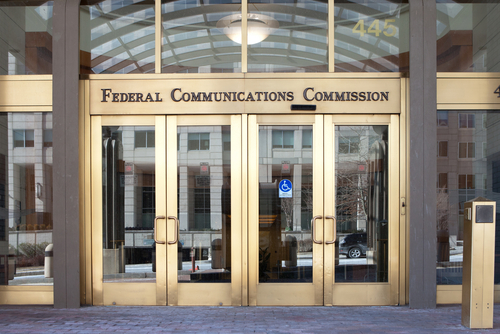A person who is interested in working in government affairs, communications, business or public administration may wonder, “What is the FCC?” The initials “FCC” stand for Federal Communications Commission, and it is tasked with the regulation of all communications sent and received by radio, wire, television, satellite and cable in all of the 50 states as well as the territories and District of Columbia. Knowing what the FCC is and what it does could help a person understand communications in a more thorough way.
Related Resource: Top 20 Best Online Communications Degree Programs
Regulator of Communications
The FCC is the federal group set up for regulating all of the communications that are distributed over cable, television, radio, wire and satellite. The group sets the rules and penalties. It also enforces the consequences if a company is found in violation of those rules. For example, the FCC sets the language rules for public television stations. If a public news channel fails to “bleep” out a curse word that is prohibited by the FCC, the company that owns the channel may face fines and other penalties.
Evaluator of Innovation and Competition
According to the FCC, another aspect of the agency is evaluating competition within the communications industry. For example, some communications companies may seek to merge or buy out a competitor. In order to avoid monopoly regulations, they have to apply to the FCC in order for the merger to take place. The FCC is responsible for analyzing the aspects of the merger and allowing or disallowing it to happen. The FCC also evaluates innovative products and approves or disapproves them for use. For example, the FCC has approved the use of 5G systems for communications.
Promoter of Technology and Infrastructure
The FCC is responsible for promoting the development of new communications technology. It advises private companies and public enterprises about how their new technology could fit into the existing system. The FCC also promotes the development of infrastructure for communications. For example, the FCC encourages the expansion of fast internet into rural areas by creating policies that make it economically feasible for private companies to build that infrastructure. The FCC may also revise policies so that new technology can flourish in a competitive business environment.
Enforcer of Existing Telecommunications Laws
The FCC enforces existing telecommunications laws. If those laws become obsolete due to changes in technology or infrastructure, the commission is also tasked with proposing new laws that will go through Congress and either be signed into law by the President or sent back for revisions in order to try again. An important part of the enforcement of the existing telecommunications laws performed by the FCC is ensuring that the nation’s communications system is strong and can defend hacking and other nefarious activities. This is essential in the case of a regional or widespread natural or man-made disaster.
Anyone who is considering a career in communications, business or the government should know what the FCC is and what its primary functions are. Understanding the regulations set forth by the FCC could help a person avoid penalties that would come from breaking one of their communications rules. Knowing the answer to the question of, “What is the FCC?” allows a person to make informed decisions about their career and the tasks they do in their job.

